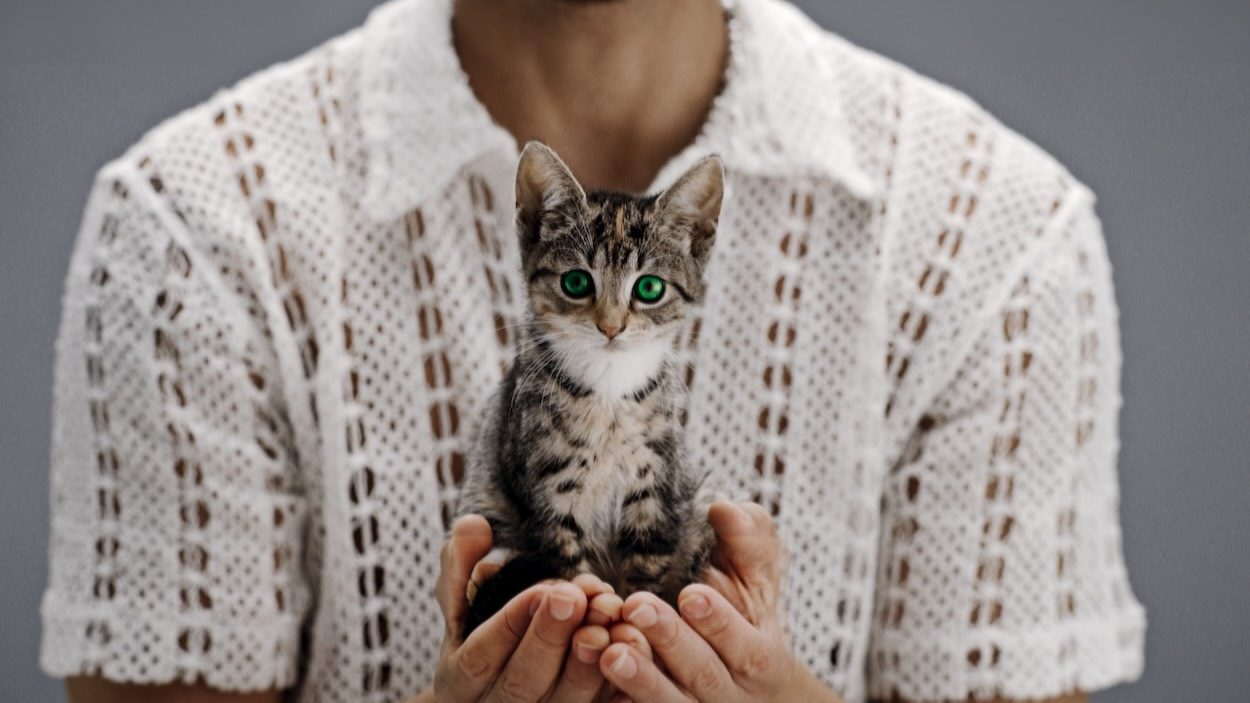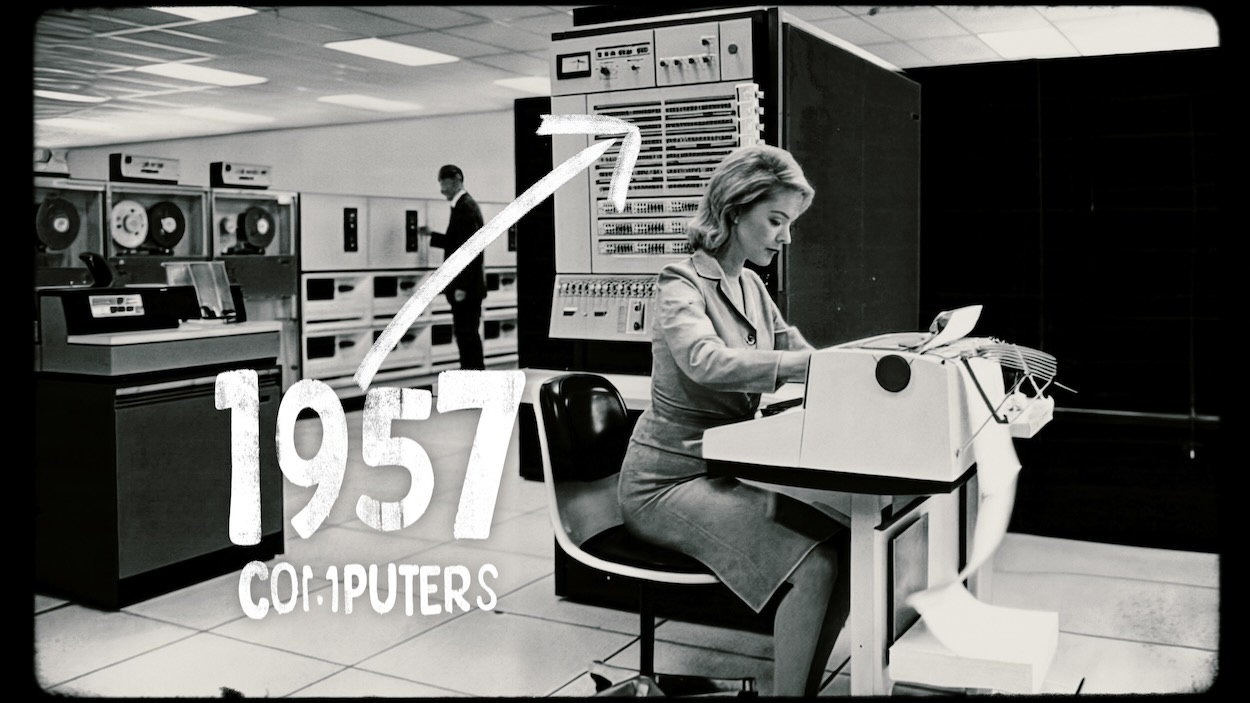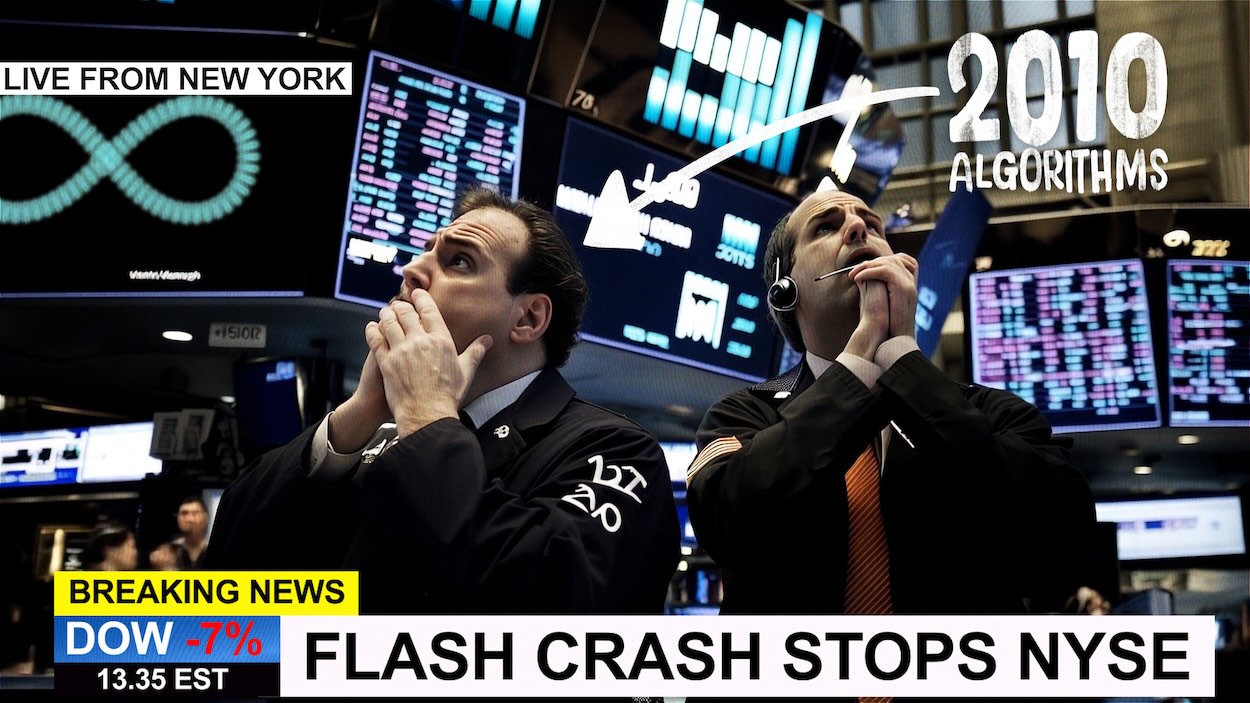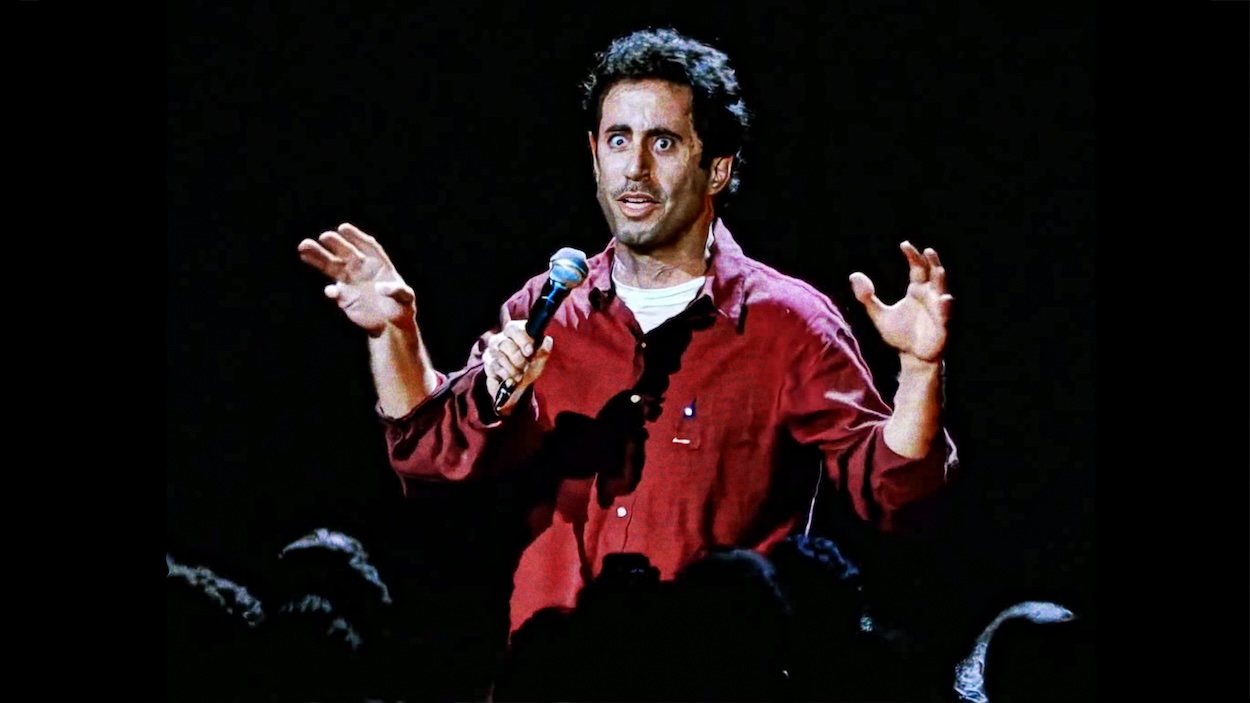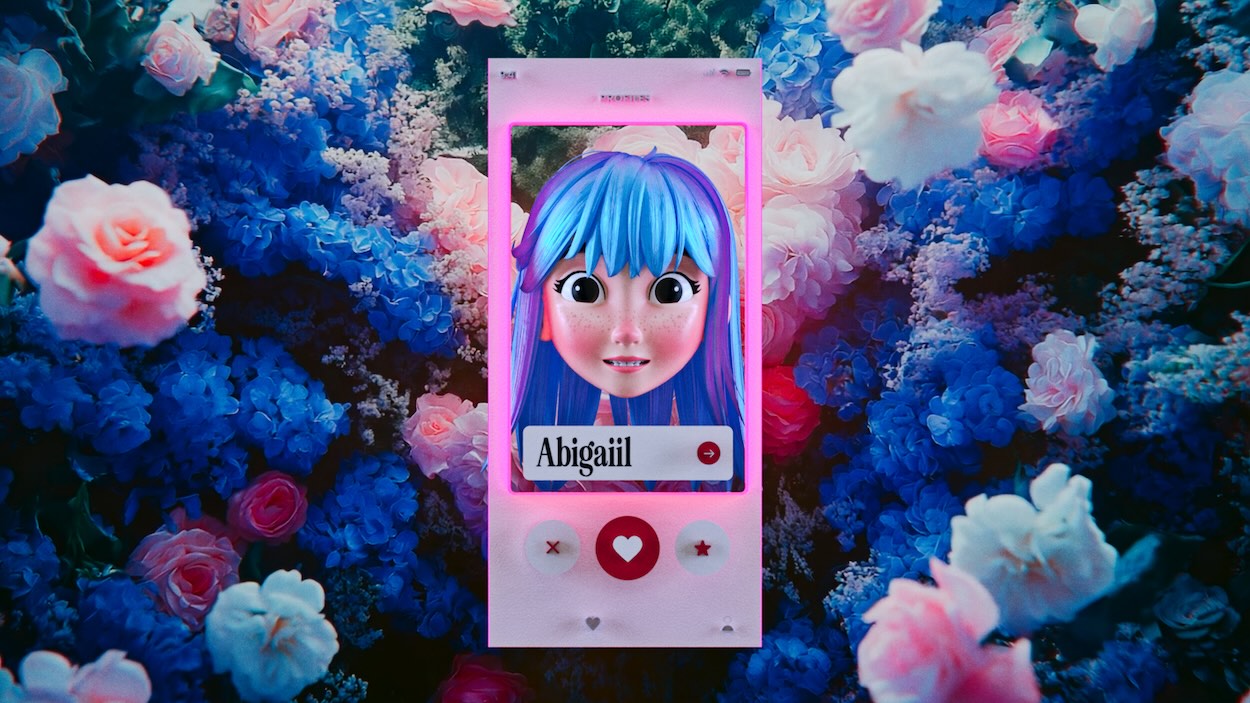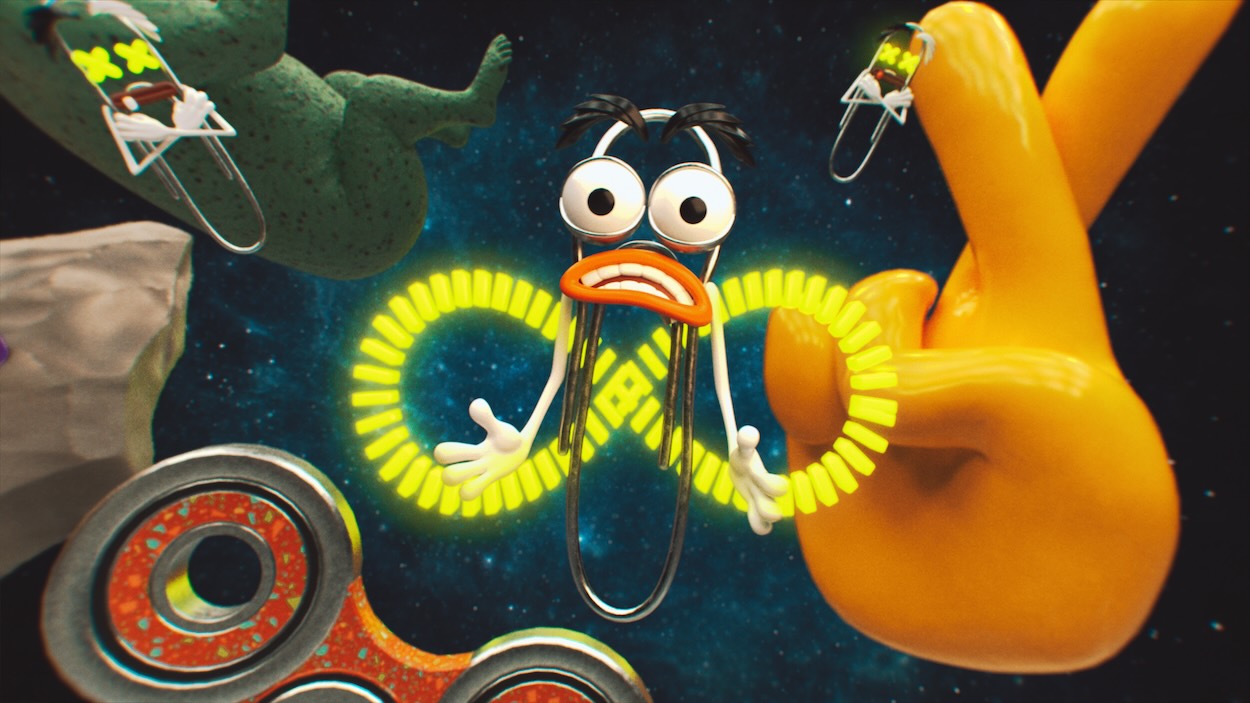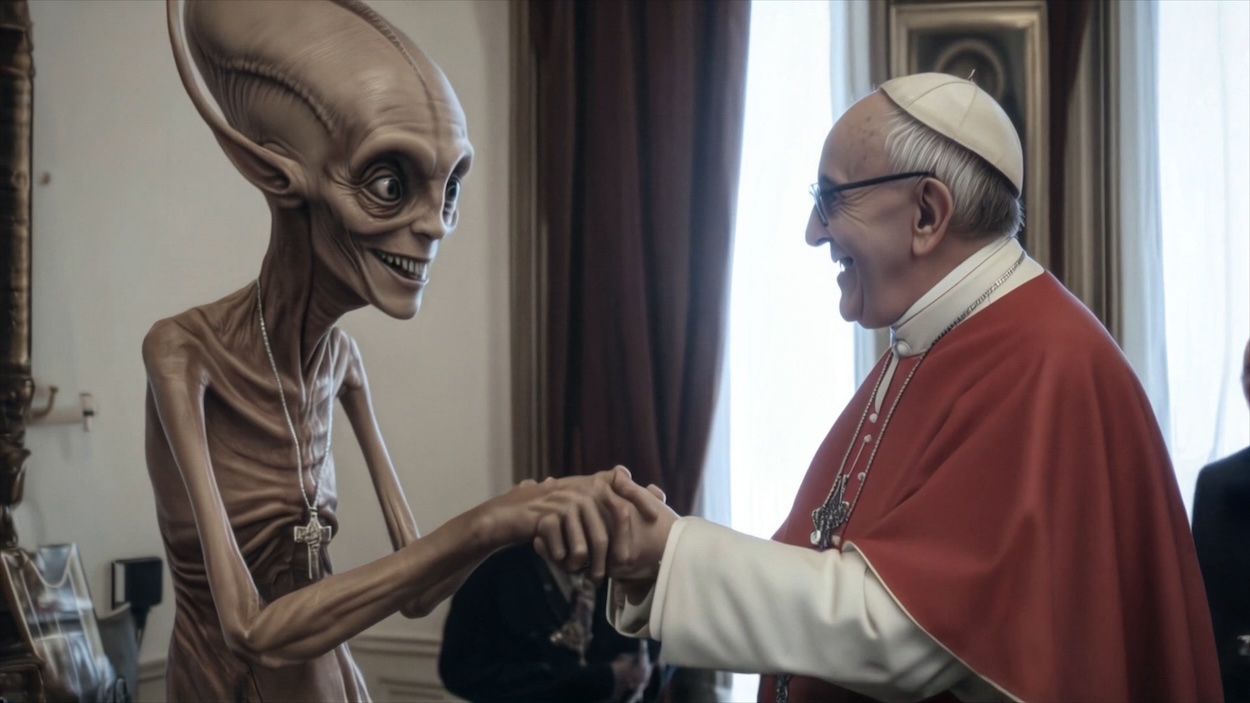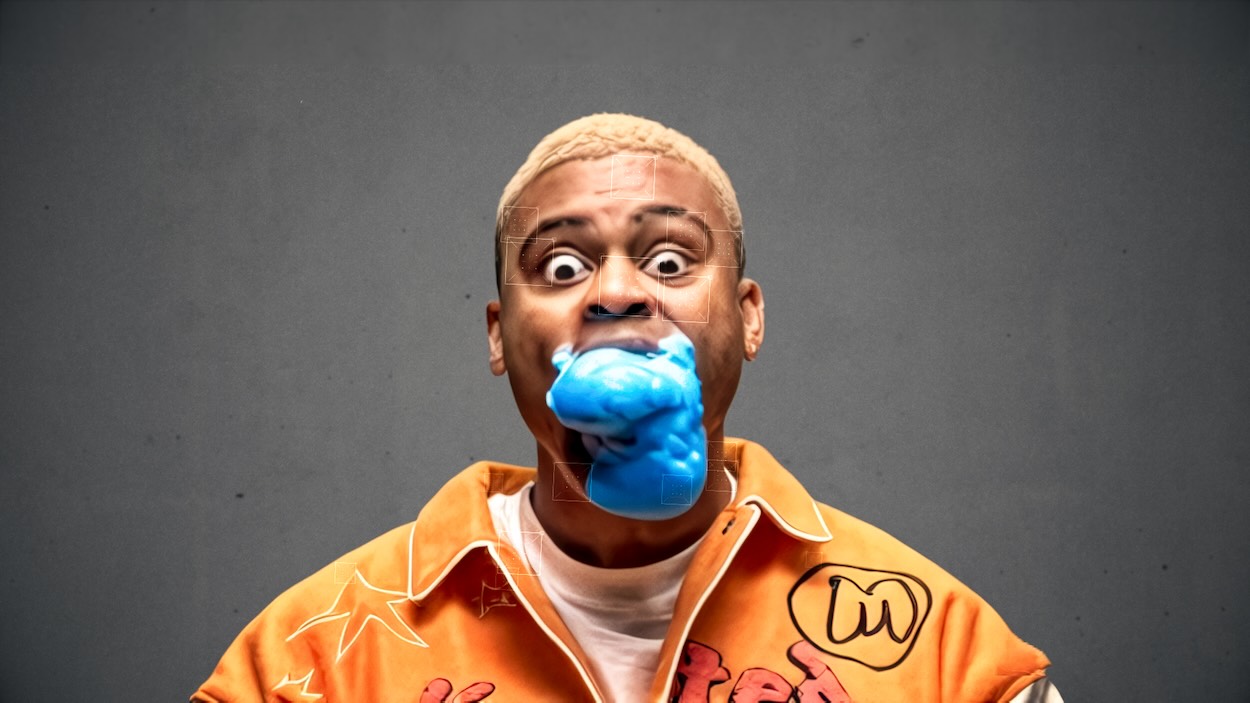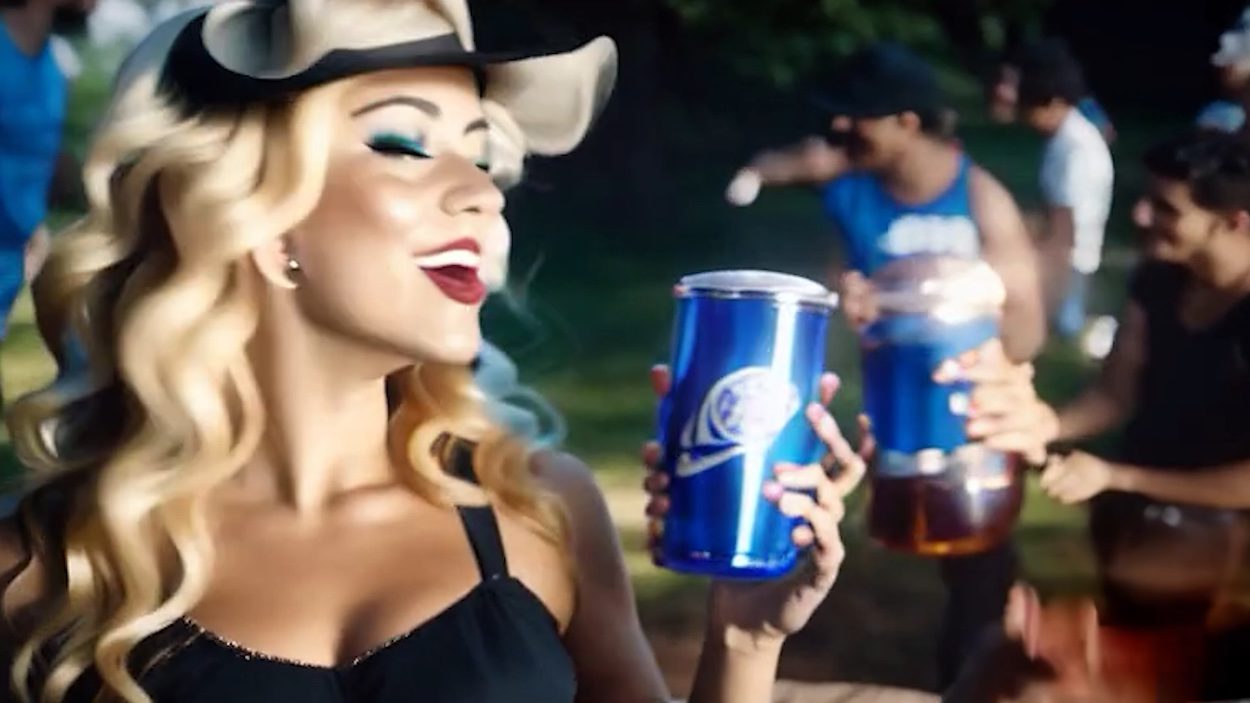What inspired you to focus on AI throughout the anthology, and how does Meme, Myself and AI differ from the earlier films?
Our fascination with artificial intelligence kicked off when text-to-image technologies started making significant strides — it felt like a Pandora’s box of creative possibilities. The anthology format gave us the freedom to tackle different facets of AI across the three films, both in subject and production.
With Meme, Myself, and AI, we decided to turn the lens inward. While the earlier films treated AI as an external phenomenon, this final part examines how AI serves as a reflection (sometimes a distorted one) of ourselves. It’s less about AI as an enigmatic entity and more about what it reveals about our nature, biases, and aspirations.
We wanted to challenge the audience to consider that the imperfections we see in AI are, in fact, our own, magnified.
How did you blend live-action with synthetic visuals and audio to create the film’s unique aesthetic? Were there specific influences that shaped this style?
Blending live-action with synthetic elements was like building a plane while trying to fly it—it was exhilarating and a bit chaotic. We combined traditional visual effects with generated elements to craft a world that’s both familiar and slightly surreal. I like the idea that, essentially, it should feel like a sort of six-minute doom scroll. Influence-wise, we drew inspiration from cosmic horror and contemporary internet culture. I absolutely spend too much time on Reddit.
How do you address ethical concerns related to AI in your work, and how does this influence your creative process?
Ethical considerations are at the forefront of our minds, especially when navigating AI. In a way, that’s the focus of all three of our films, and each one has helped us to articulate them.
Initially with Infinite Diversity In Infinite Combinations, I think we were very focused on the ramifications of unhygienic or biased training data; then, with Synthetic Summer, the zero-sum consumption that an age of AI might usher in. Finally though, I think we’ve come around to feeling that the gravest danger is probably ourselves, as humanity is really behind all the issues associated with AI.
When we first screened Meme, Myself & AI, I was slightly taken aback by people saying how angry the film was and I guess it is and I am! We’re collectively sleepwalking into something that will bring vast change and be incredibly hard to unpick if we don’t regulate and legislate!
Given the rapid advancements in AI, do you think it will change the future of filmmaking, and could it replace traditional methods?
AI is undeniably transforming the filmmaking landscape, democratising tools and techniques that were once the domain of big-budget productions. However, I don’t believe AI will replace traditional filmmaking; rather, it will augment and enhance it. I feel it’s a more extreme version of the advent of filmmakers using 5Ds or visual effects software becoming available to anyone.
I think the understandable worry is that this is going to happen exponentially faster and on a greater scale than the prior advancements and that does ask some questions. Personally, I think it’s probably going to accelerate the trend of sliding more of the filmmaking process into post – which, of course, has its own set of pros and cons.
Essentially, though, filmmaking is inherently a human endeavour rooted in emotion, intuition, and collaboration. While AI can visually do the heavy lifting on visuals, it lacks the depth and ingenuity to deliver interesting scripts and performance.
How do you ensure your films remain emotionally resonant despite their technological focus?
At the heart of any film is the human experience—our emotions, relationships and the stories that connect us. Fundamentally Meme, Myself and AI is about the human condition. While technology plays a significant role in our films, it serves as a tool to magnify and reflect these underlying themes.
Maybe even more important is humour; a lot of work in this space is… kinda pompous, dealing with grand themes and lofty ideas. I guess we’re keen to poke fun at that, which hopefully strikes a chord. I think if we can laugh at something, even if it’s pitch-black humour, that helps build a connection.
As an animator, how has your background influenced your work directing AI-driven projects?
My background in animation is instrumental in bridging the gap between creativity and execution. Animation teaches you how to convey emotion, narrative and nuance without relying solely on live actors. This is directly applicable when working with AI-generated content; to me, it is a form of animation. Increasingly, as our tools get more sophisticated, we can leverage traditional skills to harness new technologies in a way that serves the story. It’s the same old tale of using our creativity to make something resonate, just with different software.
I always generally edit my work too and that muscle is incredibly important with generative AI. About three-quarters of the voices in the film are synthetic and that’s a somewhat painstaking process of generating a huge volume of takes and slowly piecing them together to create a coherent performance.
What message do you hope audiences take away from Meme, Myself and AI?
I hope viewers come away with a deeper understanding of how much of ourselves we embed in the technologies we create. AI isn’t an alien invader; it’s more like our echo, reflecting our values and flaws – sometimes with uncanny accuracy – but fundamentally, it can only be an echo because it has no actual desire.
Ideally, the film sparks conversations about responsibility in our increasingly tech-driven world. If it also leaves audiences both entertained and a bit introspective, then we’ve done what we wanted to.
What’s next for you and Private Island?
Our goal is to make fun, weird mixed media stuff using whatever tools best serve the script but hopefully, this trilogy will open some new doors. When we set up PI, it was always with the intention of balancing commercial work with self-initiated projects to keep us excited, engaged and experimenting and whilst it’s taken us a few years to be able to do it at a worthwhile scale, fingers crossed, it’s just the beginning. Going forward, we’re extremely interested in narrative work, be it short form, or longer.
INFO:
See Infinite Diversity Infinite in Infinite Combinations here
Private Island website
@privateislandtv
